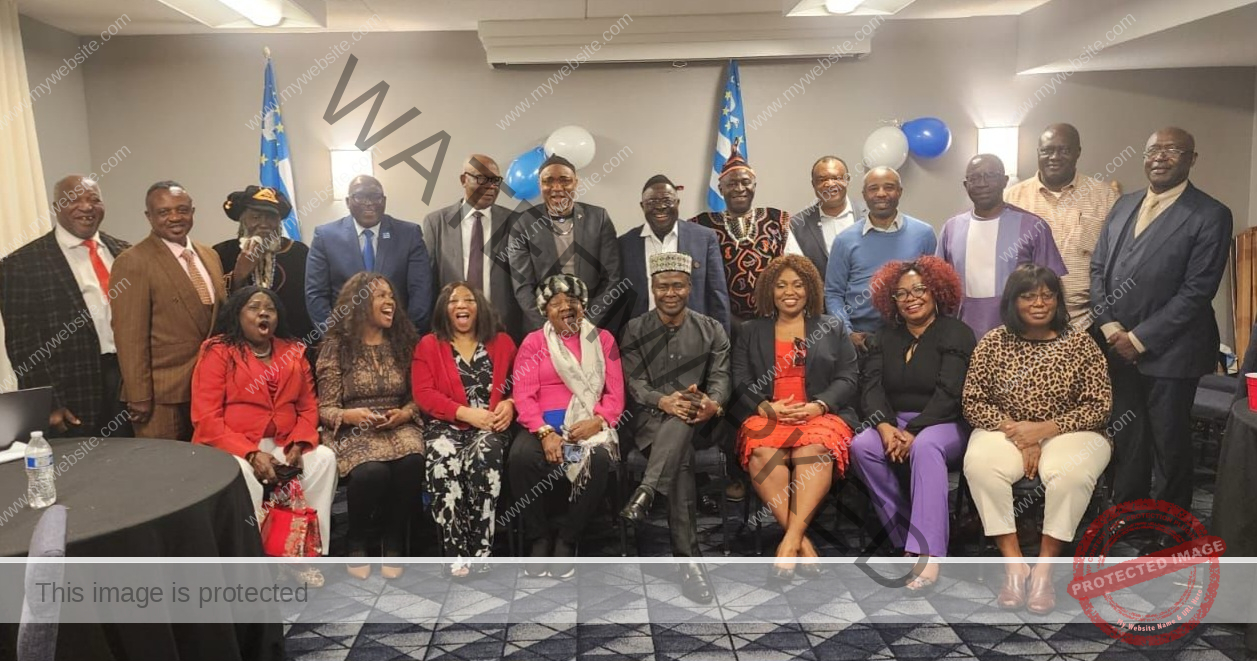The divine architects of the Ambazonian dream. The government of the Federal Republic of Ambazonia (in exile) under the stewardship of Dr. Samuel Ikome Sako
By The Independentist News Desk
As the Republic of Cameroon (LRC) heads toward its highly contested October 12, 2025 presidential elections, a quieter yet far more consequential transformation is unfolding: the re-emergence of Ambazonia—not as a fragmented insurgency, but as a government-in-exile with growing international recognition.
At the heart of this evolution is Dr. Samuel Ikome Sako, President of the Government of the Federal Republic of Southern Cameroons, Ambazonia, whose methodical diplomacy and institutional discipline have refocused the Ambazonian cause from factional disorder toward coherent state-building and strategic multilateral engagement.
From Division to Institutional Unity
The early years of the Ambazonian independence movement were plagued by internal conflicts, cults of personality, and chaotic media behavior. Figures like Chris Anu, Marianta Njomia, and the imprisoned Sisiku Julius Ayuk Tabe long embodied fractured authority rather than a united leadership. Worse still, Cho Ayaba—now reportedly imprisoned in Norway on visa and terrorism-related charges—was increasingly viewed by diplomatic observers as a disruptive proxy, often tied to French intelligence and anti-dialogue narratives.
In contrast, the government led by Dr. Sako has established functioning institutions, convened a Restored House of Assembly, and created a Unified Treasury with transparent oversight—a sharp departure from past financial mismanagement. Through diplomacy—not slogans—Sako has redefined Ambazonian legitimacy.
Alignment with the Montevideo Convention: A Lawful Restoration Struggle
Crucially, President Sako has aligned the restoration struggle of the Federal Republic of Southern Cameroons, Ambazonia with the principles outlined in the Montevideo Convention on the Rights and Duties of States (1933)—often misquoted, but foundational in international law. This Convention defines the criteria for statehood as: a permanent population, a defined territory, a government, and the capacity to enter into relations with other states.
Ambazonia, in its historically British-administered configuration, fulfills these criteria:
A stable and distinct population, with its own languages, legal institutions, and cultural identity;
Defined borders, as inherited from Anglo-French colonial partition and reaffirmed in UN decolonization resolutions;
A restored government with executive, legislative, and defense structures, and an active diplomatic corps;
A proven capacity to engage international bodies, with formal communications to the UN, African Union, ECOWAS, and United States.
By grounding its restoration efforts in legal precedent, Sako has transformed Ambazonia’s claim from rhetorical demand into lawful recovery of stolen sovereignty.
Diplomacy of Presence: A New International Profile
One of Dr. Sako’s most notable achievements is reshaping international perception of the Ambazonian question. Through official submissions to the UN, appearances before the U.S. Congress, and sustained advocacy at the African Commission on Human and Peoples’ Rights, the Government of the Federal Republic of Southern Cameroons, Ambazonia now speaks the language of sovereign states—not splinter groups.
The strategic partnership with Ambassador Tibor Nagy, former U.S. Assistant Secretary of State for African Affairs, marks a turning point. Nagy has repeatedly warned the LRC about its atrocities in Ambazonia, stating publicly that “Cameroon is sitting on a volcano of injustice.” His voice has been amplified by scholars in the U.S. and U.K., human rights organizations, and African diaspora networks—forming a moral firewall that Yaoundé can no longer bypass.
These diplomatic gains are no accident—they are the result of deliberate and structured statecraft under Sako’s leadership.
Strategic Communication: The Rise of Ambazonian Media Power
The launch and consolidation of ABC Networks 24, the official voice of the Ambazonian people, has played a critical role in neutralizing misinformation and counterintelligence operations. Where once Chris Anu’s dramatic broadcasts confused sympathizers and foreign observers alike, ABC Networks 24 now delivers verified reports, coordinates documentation for international courts, and issues formal legal communiqués.
This transition—from chaotic social media activism to institutional media diplomacy—has redefined the narrative: no longer rebels, but rightful stewards of an occupied state.
Security Narrative: From ‘Terrorists’ to Defenders of the Homeland
The security situation remains tense, particularly in Bui, Lebialem, and Meme. However, under Dr. Sako’s leadership, community defense efforts have been reorganized and localized codes of conduct introduced. This includes the Ambazonian State Army, led by General Hardknock, now operating in coordination with civilian authorities aligned with the Government of the Federal Republic of Southern Cameroons, Ambazonia.
While isolated rogue actors still exist, their influence has significantly diminished. Several former fighters have surrendered or joined rehabilitation programs in Nigeria. The terrain is shifting from chaos to command.
What This Means for LRC and the October Elections
The Cameroonian deep state—still dominated by the Bulu-Beti oligarchy—once hoped to exploit internal Ambazonian divisions. But with Ayaba neutralized, the diaspora united, and Sako’s credibility rising, that strategy has backfired. Today, the Biya regime faces a threefold threat:
Loss of international protection, as scrutiny mounts from the U.S. Congress, European institutions, and the United Nations;
A consolidated, structured Ambazonian opposition aligned with international norms;
The collapse of French diplomatic credibility, increasingly viewed as complicit in genocidal silence.
The Road Ahead: From Recognition to Restoration
The path to international recognition remains steep, but Ambazonia no longer wanders in the wilderness. The momentum built by the Government of the Federal Republic of Southern Cameroons, Ambazonia shows that sovereignty is not just declared—it is earned through discipline, diplomacy, and documentation.
Ambazonia is no longer met with pity but with respect—earned through lawful governance and strategic vision.
As 2025 unfolds, the question is no longer whether Ambazonia exists, but how much longer the world will delay the recognition of its right to self-determination.
The Independentist News Desk

